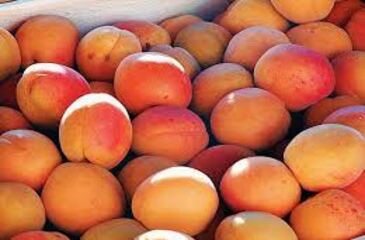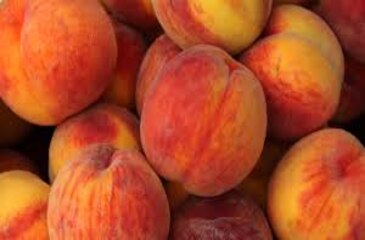Fruits
Pakistani Fruits: Taste the Richness of Nature, Delivered Fresh to the World
We can Grow On Demand
Available for Order
Pakistan is renowned for its diverse and high-quality fruit exports, from the sweet mangoes of Sindh to the juicy kinnow oranges of Punjab. With fertile soil and favorable climates, the country produces a wide variety of fruits that meet international standards for freshness, flavor, and nutritional value. Pakistani fruits are grown using sustainable farming practices, ensuring they are both healthy and eco-friendly. By exporting fruits globally, Pakistan is positioned as a key player in the international fruit trade, offering delicious produce that caters to diverse consumer tastes.

Orange
Pakistan’s oranges, particularly the Kinnow mandarin, are renowned for their distinct taste, aroma, and rich nutrient content, especially vitamin C. The country’s ideal climate and fertile soil produce oranges with superior flavor, making them perfect for fresh consumption or juicing.
Harvested from November to March, Pakistani oranges are available during peak global demand. The Kinnow variety, in particular, has an extended shelf life of 4–6 months, making it ideal for export, consumption, and even decorative purposes.
Major export destinations for Pakistani oranges include the Middle East, Southeast Asia, Russia, and the UK, indicating strong global demand for their quality.
The Kinnow mandarin, a hybrid introduced by Punjab Agriculture College in 1940, is Pakistan’s top citrus export, valued for its sweet, tangy flavor and ease of peeling.

Mango
The mango (Mangifera indica) is Pakistan’s national fruit, often called the “king of fruits,” and originated in the Indo-Burma region over 4,000 years ago.
Mango trees can live for hundreds of years, continuing to bear fruit even after 200–300 years, making them a long-term agricultural asset.
The Chaunsa mango, considered one of the best in the world, originated in Rahim Yar Khan and Multan, Punjab, and is known for its exceptional sweetness.
Chaunsa mangoes are prized for their wonderful fragrance, soft, succulent flesh, and minimal fiber, making them highly sought after globally for their unique taste.

Peach
Prime Summer Fruit: Peach is a key stone fruit in Pakistan, second only to plum. While it is a summer fruit, it can be dried for enjoyment in the winter season. Its rich phenolic compounds also provide medicinal benefits.
Harvest Season: Peach harvesting in Pakistan occurs from May to September, depending on the region. Early maturing varieties, particularly from Swat, are available starting in May, extending to later varieties through September.
Export Potential: Pakistani peaches are in high international demand due to their exceptional flavor. Efficient cold storage and transport are crucial for preserving quality during export.
Challenges: Perishability, pest management, and post-harvest losses caused by poor infrastructure can significantly hinder the success of peach exports.

Apple
- Apple is the most significant fruit crop in the mountainous regions of Pakistan, thriving in diverse climates and altitudes.
- All cultivated varieties belong to the species Malus pumila, which is well-suited for various environmental conditions.
- Apples are predominantly grown on the plateau of Baluchistan, as well as in the middle to high mountains of Khyber Pakhtunkhwa (KPK) and Azad Kashmir.
- The favorable climatic conditions in these regions contribute to the production of high-quality apples, making them an essential part of Pakistan’s agricultural landscape and an attractive export option for international markets.

Apricot
Apricot belongs to several species in the genus Prunus, with P. armeniaca being the most common. This fruit thrives in dry, temperate climates, requiring 300 to 900 chilling hours for optimal maturation.
A significant challenge in apricot cultivation is late spring frosts, which can damage the delicate flowers.
Additionally, apricot trees are sensitive to temperature fluctuations during winter, impacting their growth.
Versatile in nature, apricots have tremendous potential for value addition, including pulp, juice, jam, and dried products. Dried apricots are popular in health foods, featuring in breakfast muesli, shakes, cereal bars, and baked goods.

Banana
Banana production in Pakistan has more than doubled over the past five years, increasing from 0.14 million tonnes in 2018-19 to 0.29 million tonnes in 2022-23.
Sindh province remains the dominant region for banana cultivation, with its land use growing from 94% in 2018-19 to 96.8% in 2022-23, highlighting its significance in the industry.
A recent analysis by Gallup Pakistan on the “Fruits, Vegetables, and Condiments Statistics of Pakistan, 2022-23” provides insights into production trends and consumer spending on fruits and vegetables.
This growth presents significant opportunities for exporting Pakistani bananas to international markets, driven by increasing production and demand.


